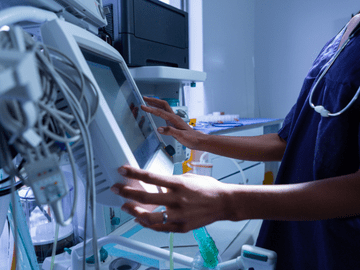On May 26, 2022, the new Ordinance on In Vitro Diagnostic Medical Devices (IvDO SR 812.219), the revised Ordinance on Clinical Trials with Medical Devices (ClinO-MD, SR 810.306), and the In vitro Diagnostic Devices Regulation (IVDR, Regulation EU 2017/746) entered into force. These measures will improve patient safety by introducing stricter measures which ensure the safety and quality of in vitro diagnostic medical devices circulating in the Swiss market. In this article, we will point out the most relevant new developments concerning performance studies pointed out in the new legislation.
“Performance studies”
According to the revised legislation, the concept of “clinical trial” now includes both those of “clinical investigation” and “performance study” (“a study undertaken to establish or confirm the analytical or clinical performance of an IVD and under Ordinance on In-Vitro Diagnostics (IvDO)”). The legislator has also subdivided performance studies into two subcategories, interventional and non-interventional performance studies. By the first one, we mean “performance studies where it cannot be ruled out that the result of a diagnostic test that is performed may influence decisions relating to the treatment or the management of the participant being tested” (KOFAM, 2022).
When do you have to submit your performance study to Swissmedic?
The Swiss authorities (Swissmedic) have published an Information sheet containing a decision tree. This tool aims to help those interested in determining whether they must submit research projects to Swissmedic and the responsible cantonal ethics committee for their approval. A special treatment has been reserved to category C (pre-market interventional) performance studies authorisation, that is authorization needed in case of interventional studies with product without conformity marking, or product not used in accordance with instructions for use, or product that is prohibited in Switzerland (KOFAM, 2022). Indeed, , sponsors should send the authorisation request on the same day to Swissmedic and the responsible cantonal ethics committee. Swissmedic can issue an authorisation only if the ethics committee has approved the same trial documentation version.
Requirements to get authorization by the Swiss authorities
Swissmedic can authorise a performance study for category C only if the following criteria are met:
- The device to be investigated must have reached a sufficiently advanced stage of development to be suitable for use in humans and must have been released for study by a responsible person.
- All organisational measures must have been taken.
- Documentation specified in ClinO-MD must be prepared following the European Regulation on In-Vitro Devices Regulation (IVDR).
The Swiss authorities have also published a document to explain the steps of the authorisation process (you can read them here).
Submission during on-going clinical trials in Switzerland
During category C (pre-market interventional) ongoing performance studies, sponsors have various authorisation and reporting obligations towards Swissmedic. The legislator has defined two different situations when this duty has to be fulfilled:
a. Substantial modifications
Sponsors must submit an application for authorisation to the Swiss authorities in case of any substantial change to the performance study. This means that it is required when the modification:
- are likely to have a significant impact on the safety, health or rights of the participants; or
- could have a substantial impact on the robustness or reliability of the clinical data generated by the study;
- consists in a change of sponsor.
Swiss authorities always issue a written decision concerning the permission to apply substantial modifications to an authorised clinical trial.
b. Reporting duties
Additionally sponsors should notify Swissmedic of the following:
- Serious adverse events that have a causal relationship with the investigational device, the comparator device or the study procedure or where such a causal relationship is reasonably possible, and any related new findings;
- Device deficiencies that might have led to severe adverse events if appropriate action had not been taken, the intervention had not occurred, or circumstances had been less fortunate, and any related new findings;
- new circumstances that could threaten the safety of the subjects, and the corresponding safety and protective measures envisaged
- Annual safety report (current written report incl. list of SAEs and device deficiencies included in the report);
- Non-substantial modifications (no need to be authorised by Swissmedic);
- Completion, discontinuation or interruption of the performance study and Performance Study report.
If you are looking for more background on the status of the Mutual Recognition Agreement between the EU and Switzerland, please read here.
Do you want to know all the implications of the new Swiss Ordinance? Are you a non-Swiss based manufacturer? Contact us today to direct you towards Obelis CH, your future Authorised Representative for the Swiss market!
Matteo SCODANIBBIO
RA Department
10.08.2022
Interested in selling your medical devices in Switzerland? Obelis can act as your Swiss Authorized Representative and turn your Swiss journey into a success story! Contact us today.
References
KOFAM. (2022). Clinical trials with medical devices, including in-vitro diagnostic products: changes in the legal requirements. KOFAM website. Retrieved on 09/08/2022 from https://www.kofam.ch/en/applications-and-procedure/klinische-versuche-mit-medizinprodukten-en.
Swissmedic. (2022). Information sheet – Performance studies with IVD. Retrieved on 09/08/2022 from https://www.swissmedic.ch/swissmedic/en/home/medical-devices/klinische-versuche/leistungsstudien.html.
Swissmedic. (2022). Performance studies with IVD. Swissmedic website. Retrieved on 09/08/2022 from https://www.swissmedic.ch/swissmedic/en/home/medical-devices/klinische-versuche/leistungsstudien.html.
The information contained on obelis.ch is presented for general information purposes only, without obligation and it has been compiled with the utmost care to ensure it remains up to date. Nevertheless, Obelis Group cannot be held liable for the accuracy and completeness of the information published. Any reliance placed on such information is therefore strictly at the User’s risk.





